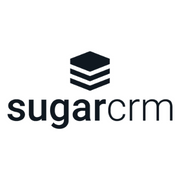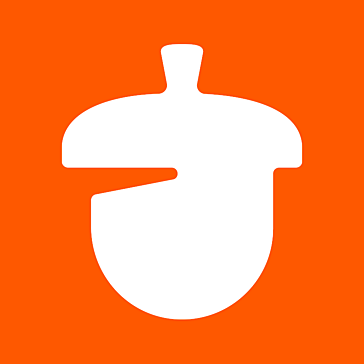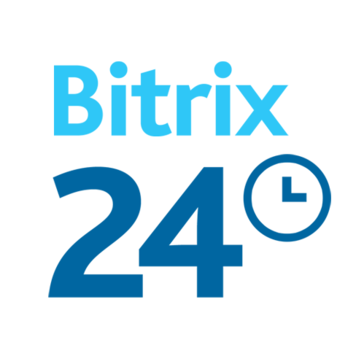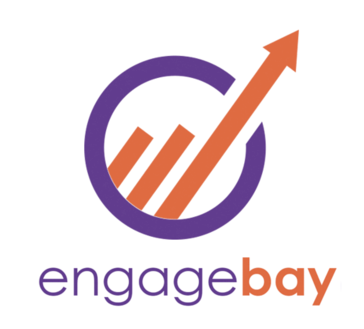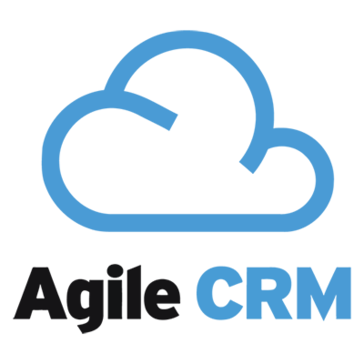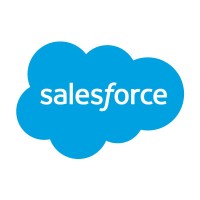Ecommerce CRM Software Buyer's Guide
Table of Contents
» What Is Ecommerce CRM Software?
Ecommerce CRM software is a digital system that helps companies keep track of customer relationships. It often features analytics, marketing, and sales functions that work together to provide the necessary information for a company's E-commerce and direct-response marketing campaigns.
This software typically has reactive capabilities, providing immediate search capabilities that allow companies to see which ads resonate with their customers during particular times or weekdays vs. weekend days. The responsiveness of these systems enables a company to monitor how its advertising efforts affect overall sales numbers and campaign performance metrics.
However, the most exciting thing about these e-commerce CRM systems is the integration with other systems and services. For instance, an eCommerce CRM system may include a feature that automatically syncs with a company's website. It helps these E-commerce companies create their brand value from scratch through online resources, mainly social media platforms and online campaigns.
Businesses need to consider the cost factor when selecting these systems and the timeframe in which they will be helpful. It is also crucial for companies to understand if this software will fit into existing systems or whether existing data will be used to benefit from this software. So, we are here with a detailed Guide on the best e-commerce CRM software.
» Why does an Ecommerce company need CRM Software?
Ecommerce CRM software is necessary for any company looking to run a business online. Without proper CRM, an e-commerce company will fail to track customer interactions adequately and may not be able to identify the best customers. By using CRM software for e-commerce, marketers will be able to target specific demographics and offer appropriate content--and they'll also spend less time entering data manually into spreadsheets or, even worse, forgetting about important information altogether.
A CRM system for e-commerce is crucial for marketing its products and services. Besides business organizations, government organizations also use technology to manage their customers. The concept of CRM has been around since the year 1999. This has made CRM more accessible for many people to create and manage customer information efficiently.
Nowadays, many people across the globe are using it to keep track of everything related to customer data management. The CRM software for ecommerce must be comprehensive and handle all aspects of the business. Customers' expectations and needs are increasing daily, so companies must try to close the gap between them and customers. An e-commerce CRM software assists you in creating customer lists, managing customer activities and transactions, and cross-selling products with myriad other benefits.
» Standard Features of Ecommerce CRM Software
When selling products to the public, there is no better tool than e-commerce CRM software. Here are some basic features that define the best of this industry:
› Data tracking:
You need a CRM for an ecommerce business that tracks what customers do on the website, including where they come from, where they are going, and which products they have viewed. The software should then be able to send out emails and other marketing materials to a person's email box when they are most likely to respond.
› Contact management:
You need to keep track of who your leads are and what contact you've had with them — email or phone calls for it to be a viable CRM solution for you. CRM for e-commerce business shows you the history of a customer's interaction with your company and allows you to track their current needs via various fields you can fill in.
› Interaction tracking:
Ecommerce CRM software should also track interactions like contact requests or new customer ideas and internal team communication among your employees. This view helps businesses recognize if a salesperson avoids sure customers or if an employee ignores a specific client's needs.
› Customer segmentation:
The administrator can create customer segments on the platform and view stats for each one of them using charts and graphs. These charts or charts will show the number of leads that come in, the average amount of revenue generated per customer, and even the number of sales made per client.
› Analytics:
As an e-commerce CRM software, it should have real-time statistics and analysis that allows you to quickly see where your sales are coming from, which products are selling the most, which marketing efforts are working best, etc. Analytical CRM for e-commerce comes with analytics tools that allow you to create ROI reports based on how your company operates, what products are sold, how well you communicate with customers, and much more.
› Email marketing:
An integrated email marketing module helps you to build customer relationships and deliver custom emails based on the needs of individual customers. You can automate email campaigns using the platform's pre-configured workflows and approvals.
› Automated customer experience:
Customers get an automated response from customer service and support with contextual messages customized to their needs. Get a faster resolution by using automatic email responses.
› Conversational commerce:
You can automatically respond to customer inquiries via chat or phone, allowing you to make a sale immediately rather than waiting for a response. You can also use conversational commerce to engage your customer base. The structure of your e-commerce webpage can be based on the conversations between your customer and yourself through email or chat queries.
› 360-Degree Customer View:
An e-commerce CRM system should allow you to access information within a single system and make your team aware of contact histories, recent interactions, insights, etc. Your group can use this data to proactively reach out to your customers instead of just reacting to their queries.
› Product recommendations:
Getting suitable product recommendations is vital for converting prospects into customers. A CRM for e-commerce businesses works on the same reasoning, enabling you to personalize product suggestions based on extensive data on customer preferences. Your customers will get relevant products, thus increasing the chances of purchasing goods from your site. Plus, even if a customer does not buy from your store, the fact that he was shown a relevant product means that you have increased the possibility of conversion in the future. Most CRM for e-commerce businesses use predictive analytics to offer customized product recommendations.
› Collaboration and Data Synchronization:
A centralized CRM tool for e-commerce will help your team work collaboratively and access data from a single system. A CRM is also a potential data sync mechanism with other marketing, sales, and support tools so that you can share client information among departments and allow for an integrated view in each case to get a 360-degree customer view.
› Lead Scoring:
Most companies don't know what their leads are worth or what a new customer is worth to the company. CRM tools for e-commerce must provide a way to track leads according to what they have done and how valuable they are to the company.
› Customer tracking:
The platform should be able to track every transaction a customer has ever made on your website for it to be considered an e-commerce CRM software.
› Social media integration:
CRM tools for e-commerce should integrate with social media platforms so that you can react to customer interests and even auto-post a post on your social accounts.
› Workflows/approvals:
No one likes to wait for approval, especially regarding something as fundamental as placing an order online. An e-commerce CRM system should have built-in workflows, support, and management features to stay organized and top-notch in the market.
› Chatbots:
A chatbot is a conversational software application that simulates conversations with human users. It starts with a question followed by an automatic response or a dialogue between the user and the chatbot.
» Benefits of Ecommerce CRM software
Are you aware of the benefits of e-commerce CRM software for your business? Here are some insights on how this software will improve your team's efficiency and effectiveness and increase your website traffic.
› Increase Your Conversions
The use of e-commerce CRM software can help you understand what successful conversions are occurring at all times. Companies who use such software have an easy time creating a personalized experience that leads to more sales, higher revenue, and improved profitability.
› Improve Your Metrics
In addition to letting you know which conversion paths lead to success, these tools also offer valuable insights into your transactions as they happen 24/7. You can thus see which marketing campaigns are succeeding and adapting to changes in customer behavior.
› Real-time online collaboration
By using such software, team members can collaborate in real time. This means that the right messages get to the right people at the right time. You can thus see where there's a need for improvement and adjust accordingly.
› Track and analyze website traffic
Your online campaign goes directly to your customers because you'll be able to see exactly how many people are on your site, what pages they're seeing at any given time, and what products they've been looking at more often than others.
› Make better decisions
By understanding which marketing campaigns yield the most results and by being able to spot patterns of success or failure, you can make smarter decisions. Plus, you have the entire marketing picture in one place to know what's working and what isn't.
› Have a well-informed team
With access to all your website data from anywhere, your team can discuss issues anytime. You can thus streamline workflow and rework processes for better results.
› Track social activity
Social media is a powerful tool for reaching customers. Hence, tracking the details of campaigns on Facebook, Twitter, or Pinterest that successfully give you leads or sales is easy. The same goes for blog comments and websites related to your business' market niche.
› Segment your customers
Because e-commerce has evolved into a complex world, we need a platform that supports segmentation. The solution must enable users to create customized groups of customers who are the same in their profile but have unique preferences, needs, or behaviors
» How to choose an e-commerce CRM software
› Software-Only vs. Cloud
Cloud-based CRMs are gaining popularity because they allow businesses to access their data in real time, regardless of where they are located. In addition, cloud-based solutions provide flexibility, allowing you to access your system from anywhere with an internet connection. However, it's important to remember that cloud solutions are typically paid monthly, which can be costly over time.
› Budget
CRMs can vary in price from a few hundred dollars to tens of thousands. Be sure that you communicate your budget to your sales team and let them know the software options you will be able to afford so they can make recommendations accordingly. You might also want to ask about the cost of customizing alerts and reports or future upgrades if your budget allows it.
› Features
Sales tools such as lead capture, pipeline management, email templates, social media integration, and dashboards can boost your sales team's productivity. If you are looking for software that will help you with lead tracking, forecasting, and forecasting analytics, then a CRM is the best place to start. However, you may be overpaying for features that don't work if you have no need or interest in those things. It's also important to remember that the more feature-rich CRMs can take more time to learn and use, potentially slowing down your team instead of helping them. CRM for an online store should at least have the features mentioned above.
› Integration
CRM tools for e-commerce are generally reasonably easy to integrate with other software and systems. E-commerce CRM software solutions can be combined with customer service software, order routing, and customer information systems. Make sure that the CRM you choose is easily adaptable to integrate with your sales, customer service, and marketing software to save yourself the trouble of having separate tools that do the same thing.
» Conclusion
An e-commerce CRM system is essential for every e-commerce company, regardless of size or age. An e-com company must have a CRM as it promotes lead generation and lead sales. However, choose the best customer relationship management for eCommerce so your company can run progressively. Also, if you are a startup, choose the best CRM for e-commerce because it initially helps build brand value and trust. These are the basics of every e-commerce business.



